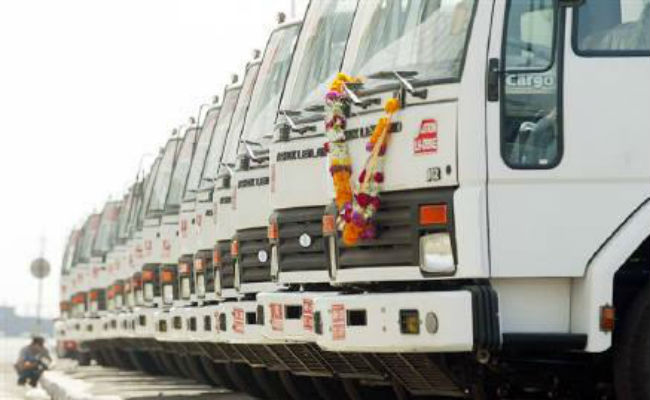New Delhi: Marking an end to their 8-year-old partnership, Ashok Leyland and Nissan Motor Co on Wednesday agreed to part ways with the Japanese partner agreeing to sell its stake in three joint ventures to the Indian partner.
In May 2008, Ashok Leyland and Nissan had formed three JVs — Ashok Leyland Nissan Vehicles Ltd (ALNVL) for vehicles manufacturing; Nissan Ashok Leyland Power Train Ltd (NALPT) for making power trains; and Nissan Ashok Leyland Technologies Ltd (NALT), which is a technology joint venture. The partners have invested about Rs 1,000 crore as equity between them.
“Nissan has agreed to sell to Ashok Leyland all of Nissan’s shares in three joint venture companies that were formed in 2008,” the two firms said in a joint statement.
Under the agreement signed on September 7, 2016, by senior executives of Nissan and Ashok Leyland, these joint ventures will become wholly-owned Ashok Leyland subsidiaries, upon receipt of all necessary approvals from the regulatory authorities in India, it said, adding the process is expected to be concluded later this year.
The financial details of the transaction have not been disclosed.
The two firms have, however, agreed for a licensing pact for select vehicles.
“The new phase of business interaction will begin immediately. Ashok Leyland will continue to build, under a licensing agreement, the successful Dost and Partner light commercial vehicles, which are based on Nissan’s design, engineering and technology,” the statement said.
Servicing and parts availability for customers will be ensured by a technical support arrangement. In addition, the two companies have agreed to continue a deal to procure made-in-India parts to Nissan, it added.
Commenting on the development, Ashok Leyland Managing Director Vinod Dasari said: “We have decided to acquire Nissan’s stake in the three joint venture companies, and this will help focus our efforts to concentrate on our core business initiatives and our customers. We will continue our relationship with Nissan under the new arrangement.”
Nissan Corporate Vice-President in charge of Global LCV Business Unit Philippe Guérin-Boutaud reiterated that the company was committed to India and has invested substantially in manufacturing, research and development and sales networks in the country.
“We are on track to becoming a major player in the Indian market. Under the licensing arrangement with Ashok Leyland, Indian commercial vehicle customers can continue to benefit from Nissan’s engineering, with servicing and parts availability also ensured,” he added.
Earlier this year, Nissan had served termination notice to Ashok Leyland for one of the three joint ventures they have formed together as flare-up between the partners continued.
The development came after the Indian partner dragged Renault Nissan Automotive India Pvt Ltd (RNAIPL) to the court over alleged violations of contract agreement and flouting of Export Promotion Capital Goods (EPCG) scheme regulations.
The partnership between Ashok Leyland and Nissan came under strain with models rolled out from their JV did not succeed in the market.
While Nissan discontinued Evalia MPV, Ashok Leyland also shelved Stile MPV which was built on the same platform. Only the Dost LCV sold by Ashok Leyland managed to do well in the market.
Ashok Leyland was unhappy with Nissan’s demand for more royalty by way of adopting cost plus structure for the successful light commercial vehicle, Dost, but the Japanese felt only the Indian firm that was benefiting from the JV as Nissan’s sole product Evalia from the JV didn’t work.
Last year, Ashok Leyland had announced that it has made an impairment provision of Rs 214 crore out of total investment of Rs 509 crore in the three JV entities with Nissan.
Such was the breakdown in their relationship that Nissan nominee directors had stopped coming to board meetings called by Ashok Leyland.
While the Indian partner was peeved at Nissan for refusing to infuse capital, the Japanese partner had insisted on a sustainable business plan to be discussed at the Board level for all the three JVs as they have been making losses in the last five years.
PTI

